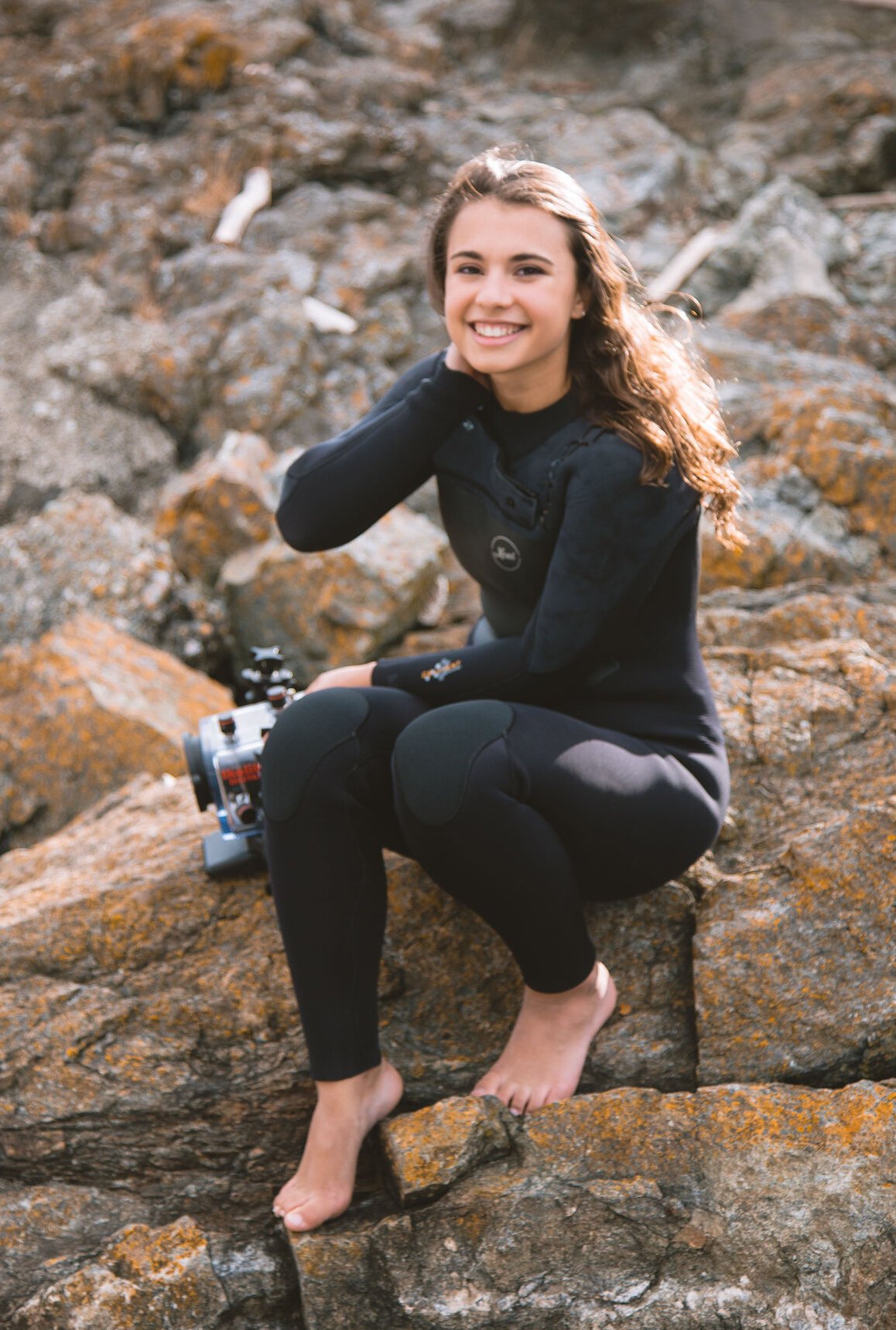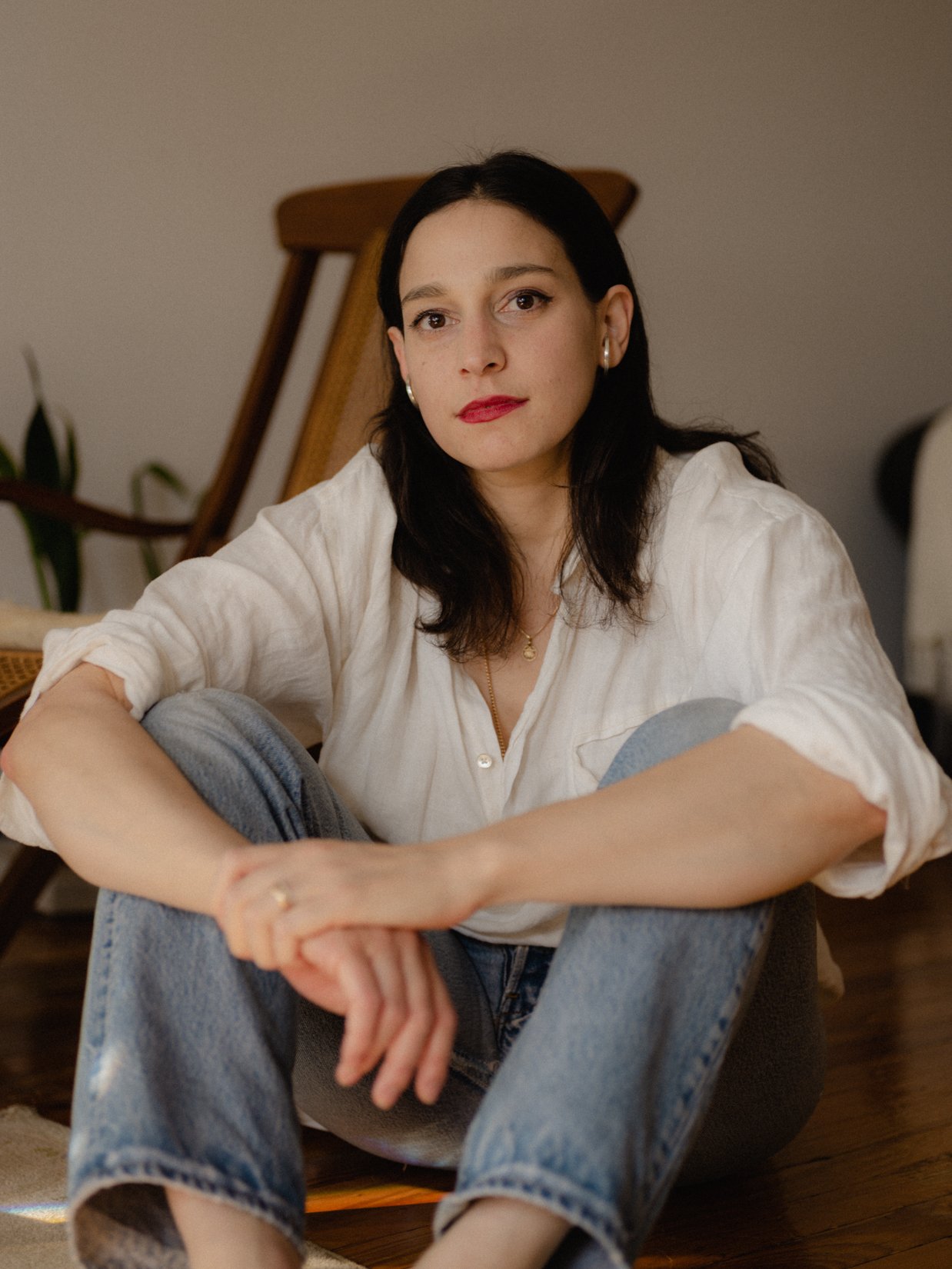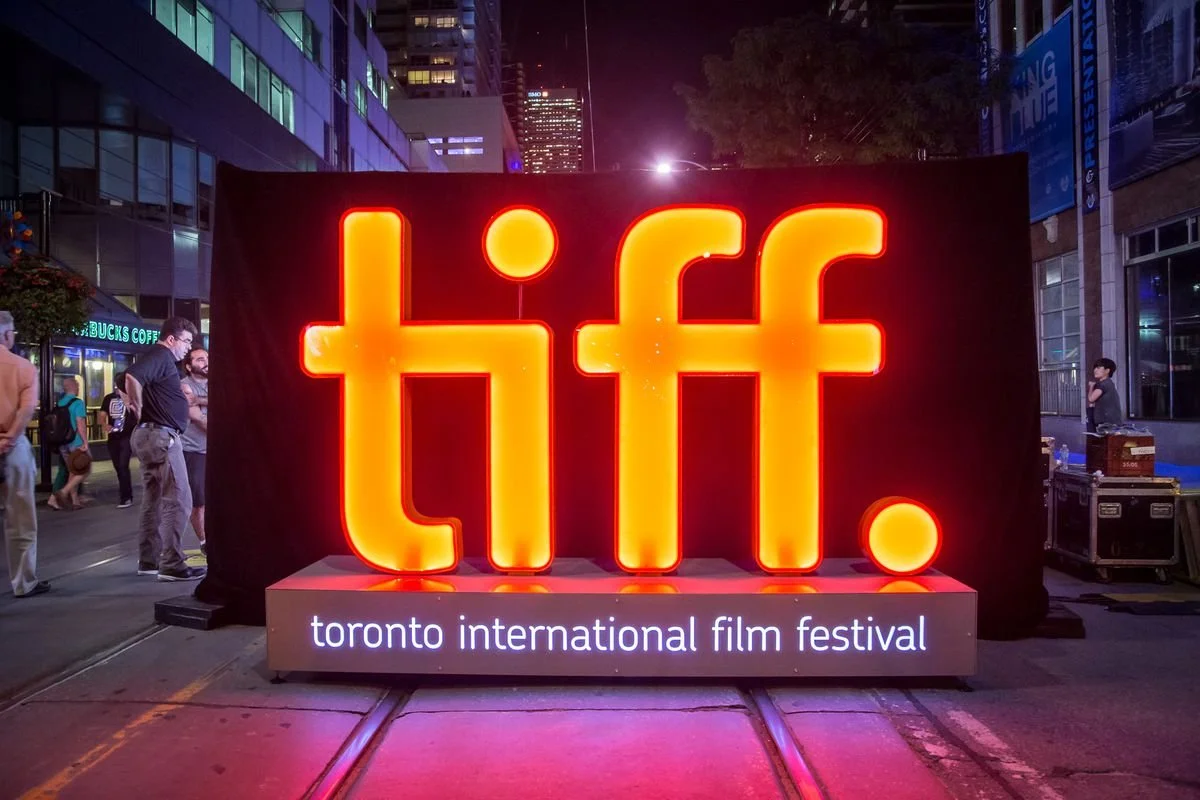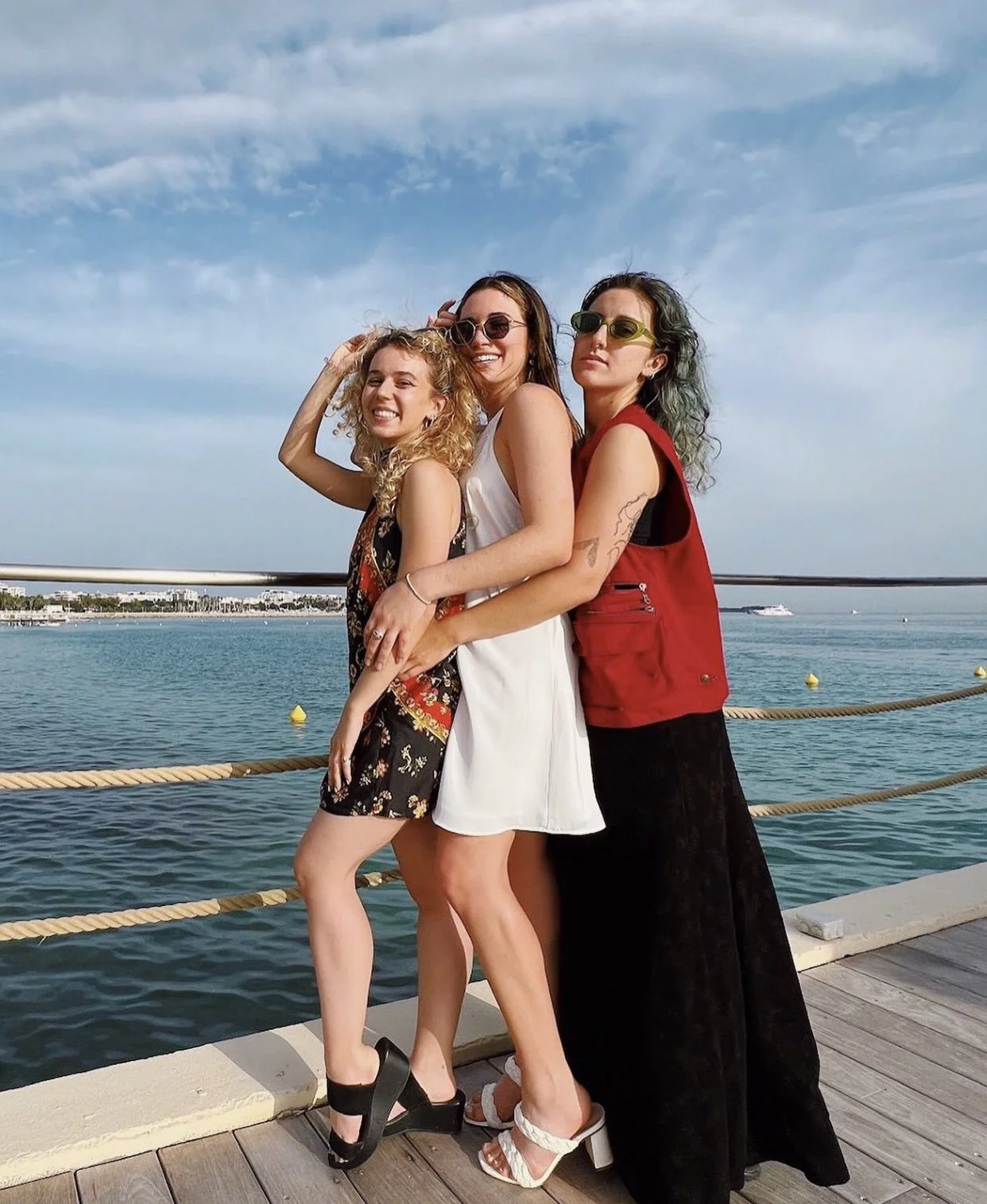Primetime Graduate Showcase 2022
And we are back celebrating the incredible talent and creatives rising from the Primetime Graduation Showcase 2022. Head over here to find about more about the incredible work Primetime is accomplishing.
During such new exciting times, with so many positive changes and improvements to be looking forward to, Primetime applauds and showcases women graduates to give them greater visibility and connect them with established members in our community.
All of those listed below have either been shortlisted or nominated for Student BAFTAs both in UK and LA, are RTS Student Award and Grierson Award winners & nominees, have had their film screened at a BAFTA or Academy accredited film festival, or have been selected for one of our international Industry friends' programmes.
Orin Kadoori
Director, screenwriter, producer, and editor
@orinka
What is your background?
I'm 26-year-old, a third-year student at The Steve Tisch School of Film and Television – Tel Aviv University, based in Holon, Israel. I have graduated in Fashion Photography studies at the Ron Kedmi Workshops School and Screenwriting under the guidance of Roey Maliach-Reshef.
What made you choose this industry?
Prior to university, I studied fashion photography. As part of a self-discovery process, I realised that beauty in fashion and still images led me to explore cinematic stories and combine writing with visuals through film. This combination of story-characters-visuals is a whole world through which I can best express myself. In terms of cinematic creation, there are three main films that led me to film studies: Café de Flore by Jean-Marc Vallée, Stoker by Park Chan-wook, and The Lobster by Yorgos Lanthimos.
What does ‘change’ mean to you?
Change can be an intimidating thing, but I think it is also a necessity to evolve and progress forward. Honestly, changes are often a thing I’m struggling to handle, but I tend to surprise myself with the way I push through it.
What are you currently working on?
Currently I'm editing a short film, which I was also its co-screenwriter with my partner, Idan Shahar Dimant, the director. The film is about two sisters, which in an attempt to overcome the rape of one of them, illustrate the incident over and over again.
On top of that, I am working on the script of my graduation film for next year.
Future wish-list?
My goal after my studies is to start my path toward a feature film. My desire is to explore and deepen complex relationships, mainly blood related relationships – power dynamics, changes in lives and the way of dealing with them. Additionally, I would like to create international films in Hebrew, which is my native language. I think it is beautiful.
Alica Bednarikova
Director & Writer
@alicabecko
What is your background?
Before film, I was really interested in theatre. I participated in a local high-school voluntary theatre group, where I soon shifted from acting towards writing and eventually, trying out directing. But during my work in the theatre, I had an urge to use a camera, to really tell the story through video rather than a stage - and thus I naturally leaned more towards film directing.
What made you choose this industry?
I was lucky to be naive enough to give it a go and ignore the red flags. I think my passion overshadowed my rational side, which I am still grateful for, although it makes the future a bit uncertain.
What does ‘change’ mean to you?
Inevitable step. I feel like I have to re-learn that ever so often.
What are you currently working on?
I am working on a short film script and an idea for a feature. I would also like to expand into videoclips, as short formats really interest me and there is so much to play with - there are no rules in these formats.
Future wish-list?
To be able to live off of filmmaking and stay true to myself.
Ella Van Cleave
Director & Researcher
@ellavancleave
What is your background?
I grew up with a long-time love and curiosity for the natural world, which led me to study conservation biology during my undergrad. After graduating I worked in a wildlife hospital in my hometown, but I was always looking for opportunities to combine science and story which took me to Bristol to pursue a master’s in wildlife filmmaking at the University of the West of England in partnership with the BBC Natural History Unit. Having grown up on the coast of British Columbia for most of my life, I have a soft spot for marine ecosystems and the communities built around them, which was the inspiration for my thesis film, Our Coast.
What made you choose this industry?
Documentary filmmaking has given me a medium through which I’ve been able to explore the complex relationships between people and nature in a way that is emotive and expressive, which I think is really special. But I think that the coolest aspect of filmmaking is that it leads you to build unique connections with people you’d most likely never cross paths with otherwise. It’s a never-ending process of learning and growth.
What does ‘change’ mean to you?
Change means a lot of different things to me, but I think most of all it’s how shifts in the world translate to how we think, and equally how the way we think shapes the world around us. I think change can feel both enormous and intimidating, and sometimes so subtle you hardly even notice it at all. Personally, I love the way that film and story can play with both scales of change by putting a spotlight on big events that are visibly altering what’s happening in the world while simultaneously building subtle narratives that subconsciously change the lens with which we view and interact with the world.
What are you currently working on?
I’m currently working as a researcher on an international natural history TV series with River Road Films in Vancouver and am in the edit for another short film for a non-profit organization called Schoolyard Films related to my former work in wildlife rehabilitation. It’s been really special to be able to go back and put a spotlight on my old team and the amazing work they do every day.
Future wish-list?
Where to start! Right now, I’m looking forward to the field work involved with the series I’m working on with River Road and experiencing some of the incredible places around the world it will take our team. Beyond that, I hope to one-day return to the part of the world where I made my first film, Big Ocean Islands, and create something new with the folks I met during that experience.
Mai Vu
Director/animator
@maivu_anim
What is your background?
I started out working in children content and TV series as an stop-motion animator and director in Ho Chi Minh city. The industry was scarce for animation and original content in Vietnam, so there were a lot of struggle. I made a switch to do animation in advertising later for new opportunity but my passion is still in films, and I want to tell Vietnamese stories for Vietnamese people. In 2020, I made the leap to come to the UK to focus back into exploring narrative at the NFTS. And so far, this journey has broaden my perspective and opened me up to new stories and new way of expression.
What made you choose this industry?
Naturally, I am drawn to animation to tell my stories because of the freedom it brings. I can tell any kind of stories I want with less resources, and I can go as wild as possible with my imagination. And over the 10 years I worked in animation, It only prove more potential to bring forward new form of expression.
What does ‘change’ mean to you?
‘change’ means new experience, and with new experience bring new perspective.
‘Change’ is a course of nature, either in term of social movement or environment, as a
filmmaker, I feel my responsibility is to record and live the change and tell stories and
help people understand, adjust to the change, or bring forward the change.
What are you currently working on?
I am looking for new stories, and developing new projects. I am also open to new project that fit narrative of under representative group, women or adolescence of struggle...
Future wish-list?
I wish to develop my skill set in working in new form of media like VR and AR, or interactive storytelling. I have a dream of developing educational platform for children using new media and creating an film and art training program for aspiring filmmaker in Vietnam. I also wish to develop my own feature in the next few years. As I am pursuing a documentary on Vietnamese immigrants in the UK, I hope to find funding for it.
Masha Novikova
Writer & Director
@mashanovikova__
What is your background ?
I was born and raised in a Jewish-Ukrainian family of artists in Kyiv, Ukraine. I studied fine arts, under Professor Karin Kneffel and Professor Julian Rosefeldt at the Academy of Fine Arts in Munich, Germany, and earned a degree with distinction in Fine Arts. Then I studied Filmmaking at the London Film School under writer/director Richard Kwietniowski and writer/director Rafael Kapelinski and earned an MA in Filmmaking.
I am very grateful to my teacher Karin Kneffel, who discovered my talent for cinema at an early stage and encouraged me to develop in this direction. I am also grateful to my teachers Richard Kwietniowsky and Rafael Kapelinski who supported me and helped me develop my writer-director skills.
What made you choose this industry?
It was my personal insane desire to direct.
What does ‘change’ mean to you?
Changes take place in us every day, especially in the morning when we start a new day. I'm just taking my first steps in my profession, but it's already clear that being a writer/director means proving that to yourself every day.
What are you currently working on?
It may sound strange but the more I think the more I come to the conclusion that I mostly work on myself. There are two things - me and my inner world, thus I am never lonely. In the course of my studies at the London Film School, I developed my own working style that includes big research and prep that consequently shape the form of the future script. I also developed a mental method, I mentally run through the future film every day, and ideas that stay with me over a long period of time approve themselves as promising.
Future wish-list?
I believe that we shouldn't voice our wishes; this removes the energy of realisation from them.
Miriam Fox
Director/Animator
@Mimriam.fox
What is your background?
I have a background in writing and illustrating fantasy fiction and graphic novels. I left school when I was 16 and didn’t think I had any direction except wanting to pursue something creative. Animation was a hobby, but become a full-on addiction after a family friend recommended applying for the BA in animation at the University for the Creative Arts, Farnham. During my time there, I found I had a passion for directing and, after graduating, took the MA in Directing Animation at the National Film and Television School. Aside from animating I’ve also worked in acting and voice acting, which has really informed directing and creating character performances. I find a lot of inspiration in lived experiences, both from myself and those around me.
What made you choose this industry?
I’ve found that animation as a medium has a unique ability to articulate important truths. Somehow, an animated character speaks to us differently to a real person. We accept them more readily, empathising with them regardless of the gender, shape, colour, species, etc. This gives animation a great power in reaching a global audience. It also gives tremendous freedom in expressing points of view in new, sometimes strange and definitely challenging ways and that’s very appealing for anyone like myself, who enjoys unscrewing the top off the world and taking a look inside.
What does ‘change’ mean to you?
Change would mean seeing a different mindset; a willingness to flex with new, perhaps challenging ways of existing day to day in this world. I personally would like to see mental health issues become part of our normal, national conversation without fear of shame or stigma, which is a key reason why Dead Silent came about as it highlights the issues men face with emotional repression in our society. Similarly, writing as someone on the autistic spectrum, I’d like to see neurodiversity become normalised as another part of the smörgåsbord of humanity, rather than being highlighted as quirky or “other”.
What are you currently working on?
I’m currently at the treatment stage of a new 2D animated short film. It examines what we do to each other, and ourselves, when we’re vulnerable; how weakness can be picked on, perpetuating a sense of shame and emasculation when actually being more sensitive is nothing to be ashamed of. My hope is that the film will provide an intense, close-up perspective of what this can feel like, with a hopeful solution at its core.
Future wish-list?
It would be wonderful to tutor animation one day; to see what exciting new things people are making while carving out a living to fund this animation habit. Meanwhile, I want to carry on making short films. The process is the best part; working with the fantastic team I know now, and meeting and collaborating with all new people too. Hopefully we’ll make something we can feel proud of and that means something to whoever watches it. What could be better than that?
Pepi Ginsberg
Writer/Director
@newagerealchange
What is your background?
I was a creative writing major and visual studies minor at University. After school I started to write songs and became a singer-songwriter and touring artist. I traveled the US and released five albums over the course of roughly eight years, although I have always been a cinefile. I made music videos for my own bands and for friends and began writing scripts after taking a break from performing. After a personal loss I moved away from music and started to work film industry jobs. I took night classes in writing and cinematography, made my own shorts and applied to NYU Tisch Grad Film where I am finishing my studies this fall.
What made you choose this industry?
I love the film industry because the industry shares my passion - making movies. I have always been obsessed with watching films. Then I became obsessed with writing and directing films. I’m just out of school and very new to the industry. But I am choosing the film industry because it's the world I can collaborate in and work in to make art and share my vision and passion.
What does ‘change’ mean to you?
Change happens slowly, for better or worse. It's a big word, sort of like love. It takes on different meanings and has a different value depending on who or what it is assigned to. Change to me means movement. The hope is that change explains an energetic shift in a positive direction towards true equity, expansiveness and love.
What are you currently working on?
I’m currently developing my first feature, HAAZER, a queer psyhoclogical thriler about a closeted freshman wrestler at an elite university who becomes the prime suspect in the disppareadnce of a young woman. I’m also developing another short film, wassupkaylee, that follows an exceptional day in the life of a burgeoning TikTok star as she joins a new content house where she struggles to earn her keep to dire consequences.
Future wishlist?
First feature, first limited series, more music videos, the ability to continue making the work I love, more collaboration, broadened perspectives, ideas from the unknown, more light, more love, progress.
Sara Massieu
Director and Animator
@sasmassieuart
What is your background?
My background is in photography and graphic design.
I have interests in human rights, social issues and injustice. Also in the climate crisis, nature, etc. In more personal matters, I also have interests in sports, culture, reading, a lot of reading, among other things.
What made you choose this industry?
I guess that when I had the first little contact with animation in my BA, I discovered the power it can have to tell stories, to talk about issues in a way that live action or fixed images can’t. I love that animation can make everything possible in the way that you can create anything and it can still be real in that universe, no matter how crazy or out of our reality it is. I love that animation has so much potential in many sectors from entertainment, to education, art, business, etc.
What does ‘change’ mean to you?
Change for me is possibilities, movement. Also means adaptation, growing, at the same time, confusion and uncertainty. Change can also be the bridge between the present to the future.
What are you currently working on?
I am currently working as a freelancer doing storyboard, and colouring, in the animation industry. And also working as a freelance illustrator. I am also the creative lead at the Centre for Mexican Studies, UNAM-UK.
Future wish-list?
Continue to grow as a director and animator. I’ll also love to work on as many projects as possible on social justice, human rights, climate crisis, and all of those topics I love the most. I’ll love to keep collaborating and working with amazing people in many areas. Most of all I want to learn.














